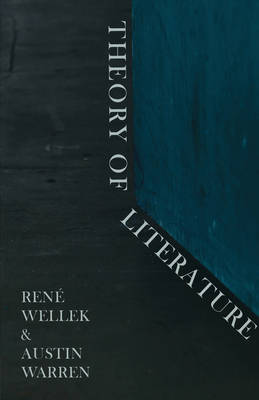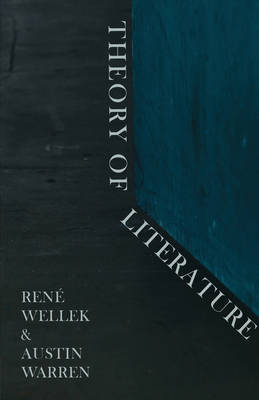
- Afhalen na 1 uur in een winkel met voorraad
- Gratis thuislevering in België vanaf € 30
- Ruim aanbod met 7 miljoen producten
- Afhalen na 1 uur in een winkel met voorraad
- Gratis thuislevering in België vanaf € 30
- Ruim aanbod met 7 miljoen producten
Omschrijving
It is said that this book reached an important milestone in the study of literature by crystalizing a movement that had been under way for two decades in this country. The movement being to focus literary criticism and literary study in general on literature itself, rather than on the historical backgrounds, the psychological mechanisms, the political and social currents that influence literary creation. It conceives of imaginative literature as a way of knowing, different from but as humanly useful as the method of natural science.
It begins with a brilliantly stated set of definitions of the nature and function of literature; and it proceeds through an examination of what goes into the making of a work of literature, to an analysis of the elements of literary composition and a statement of the principles by which we can evaluate the literary work itself.
The timeless virtue of this work is that the authors are thoroughly grounded in the traditional methods of literary scholarship, and also thoroughly aware of the impact of the social and psychological sciences on all modern thinking, then and now. Theory of Literature incorporates examples ranging from Aristotle to Coleridge and is written in clear, uncondescending prose, which, especially in its suspicion of simplistic explanations and its distrust of received wisdom, remains extremely relevant to the study of literature today. It was and still will be eagerly sought for by teachers, critics, students, and all other who seek objective standards for judging and further understanding the art of literature.
Specificaties
Betrokkenen
- Auteur(s):
- Uitgeverij:
Inhoud
- Aantal bladzijden:
- 400
- Taal:
- Engels
- Reeks:
Eigenschappen
- Productcode (EAN):
- 9781628972832
- Verschijningsdatum:
- 2/04/2024
- Uitvoering:
- Paperback
- Formaat:
- Trade paperback (VS)
- Afmetingen:
- 140 mm x 216 mm

Alleen bij Standaard Boekhandel
Beoordelingen
We publiceren alleen reviews die voldoen aan de voorwaarden voor reviews. Bekijk onze voorwaarden voor reviews.











